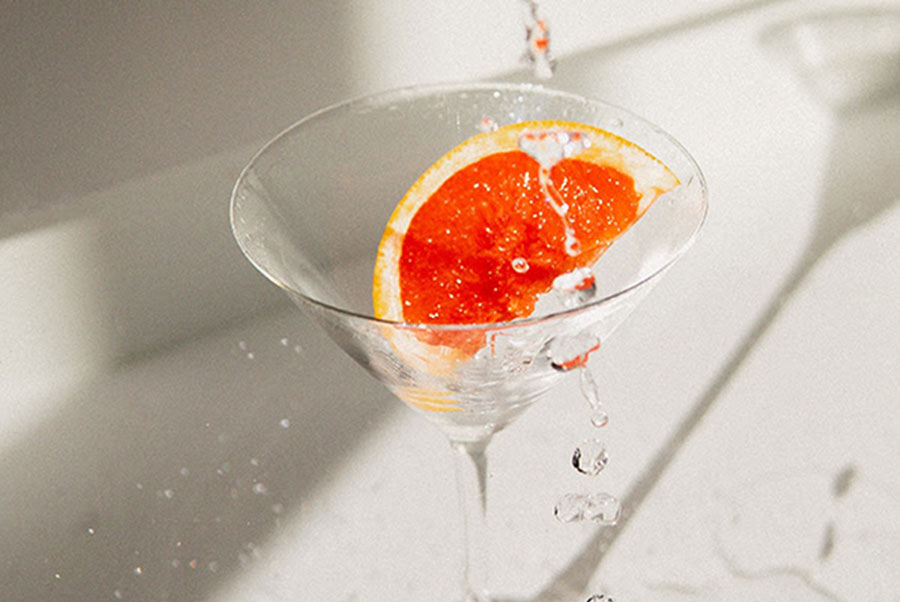
If asked, you could likely list several gin & vodka brands as well as popular cocktails that use each one. But popular brands aside, what exactly are vodka and gin?
Let’s break down the definitions in the battle of vodka vs. gin.
WHAT IS VODKA?
Vodka is a specific type of neutral grain spirit, defined as the following:
- A neutral grain spirit, made from anything that will ferment.
- Distilled to be at least 95% alcohol and bottled at 40 percent ABV (80 proof) or higher.
- Filtered to be without distinctive character, aroma, taste, or color.
Number three never made sense to me because vodka does have a taste and scent, which vary by mash bill, still type, and distillation technique.
Surprisingly, the US Alcohol and Tobacco Tax and Trade Bureau (TTB) finally changed its definition of vodka in April of 2020 to eliminate this inaccuracy. Now vodka is no longer required to be an odorless, flavorless, and colorless neutral base spirit but is allowed to have “character,” relieving distillers of the burden of creating a neutral taste and nonexistent smell.
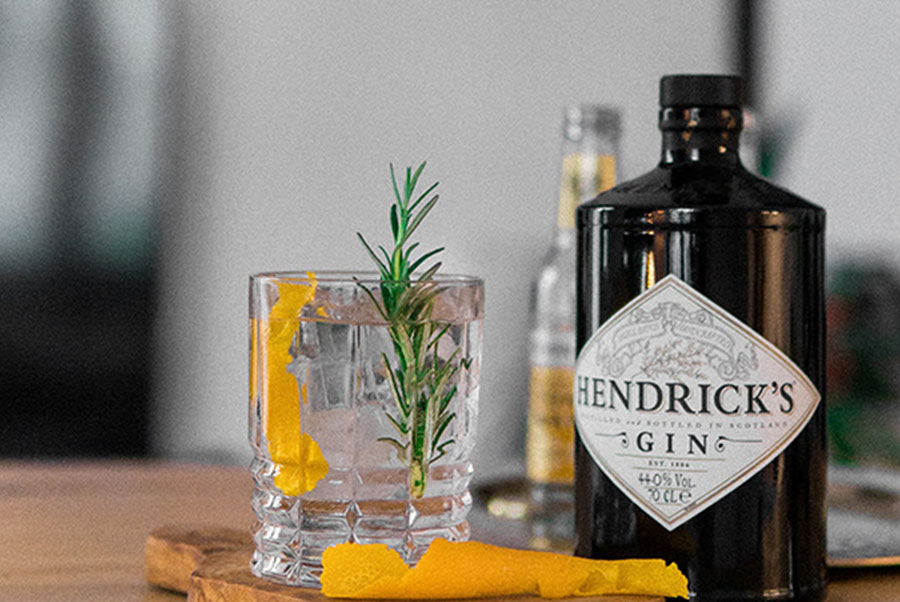
WHAT IS GIN?
Gin is defined as a spirit with these qualities:
- The flavor profile is primarily derived from juniper berries.
- Production involves the distillation or mixing of spirits with juniper berries and other aromatics or extracts as the primary ingredients.
- Bottling is at not less than 40% alcohol by volume (80 proof).
Now, let’s consider the similarities and differences between gin and vodka.
SIMILARITIES OF BETWEEN GIN AND VODKA
Both popular spirits share these qualities:
- White spirits – Traditionally, neither sees any time in a barrel. In fact, in the United States, distillers are not allowed to barrel-age a spirit and call it vodka. Both are therefore known as white or colorless spirits.
- May be made anywhere – There are no geographic designations for either alcoholic spirit, as there are with many other spirits and wines.
- Flavored vodka and gin are both often made through infusion and maceration to extract the flavors from botanicals, herbs, and spices.
As a result, small and large distillers worldwide make vodka and gin because they are relatively quick to make. Unlike whiskey and other spirits, producers don’t have to wait for them to age.
The similarities of gin and vodka often allow them to be used interchangeably– including in a martini (although a traditional martini is indeed made with gin). A variety of cocktails can also switch one for the other:
- Gin & Tonic = Vodka Tonic
- Gin Rickey = Vodka Soda with Lime
- Gimlet = Vodka Gimlet
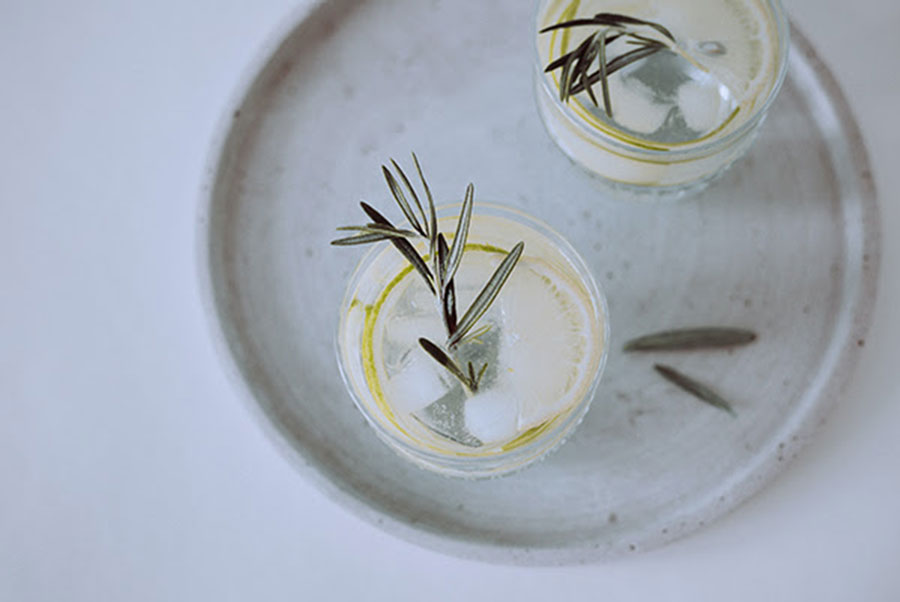
THE DIFFERENCE BETWEEN VODKA AND GIN
Gin and vodka differ along the lines of flavor, filtration, and function.
- The major difference is that gin is all about infusing flavor from juniper berries, plus other natural botanicals, aromatics, and spices. Each gin producer keeps their exact basket of flavoring ingredients a secret.
- Vodka is all about filtration to remove flavor, aroma, and taste. Of course, a modest amount remains, but they are not the main things you think of when drinking plain vodka (not including flavored vodka, which is a whole different conversation).
Based on these two spirits’ differences, how they function in a cocktail is most important when deciding which to use. Which ingredient will be the star of the cocktail?
Vodka will allow other elements to be showcased. In contrast, due to its botanical flavor, gin may try to take over a drink if the flavors aren’t balanced.
Knowing how the two liquors are similar and different allows you to pick the right one at the right time to build a cocktail that satisfies.
IS GIN BASICALLY VODKA?
As a bartender, I frequently get this question. The answer is, “Yes, and no.”
First is the “no” part. When a distiller sets out to make vodka or vapor distill a gin, the choices and techniques make them very different spirits.
But, yes. When gin is made by steeping or macerating the juniper berries and other flavoring elements in a neutral grain spirit (vodka), then redistilling, the base spirit is the same. However, the flavor is the difference.
Try it for yourself and see.
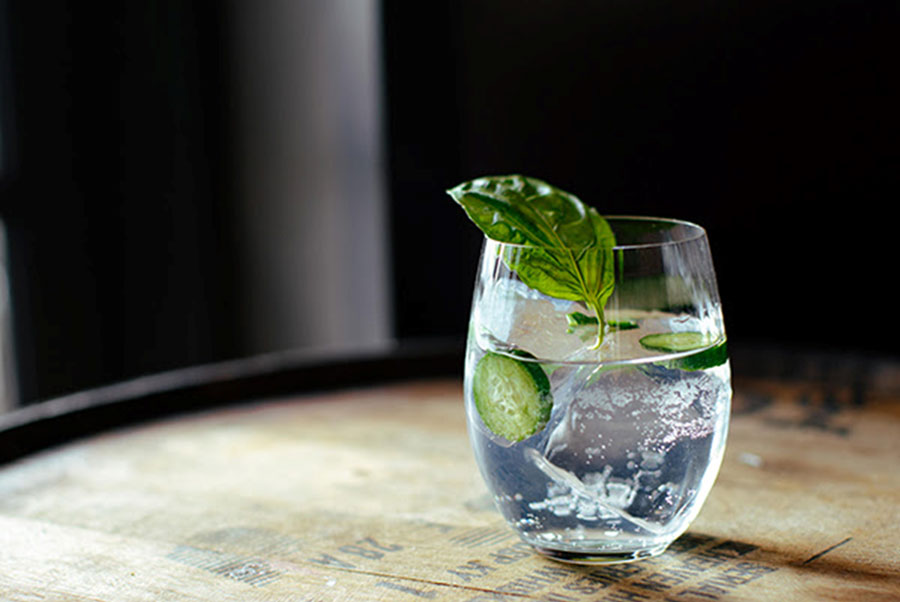
VODKA VS. GIN: DIY CHALLENGE
This is your opportunity to make a custom gin. Look at our Beginner’s Guide to Making Gin at Home, which details how to make gin in seven easy steps. (Of course, if you decide to skip this experiment, you can always compare your vodka to a store-bought bottle of gin. But it is pretty fun to infuse your own.)
Since you’ll begin your gin-making by using vodka as your base spirit, save a small amount for a side-by-side taste test to answer the question, “Is gin basically vodka?”
To evaluate vodka vs. gin, follow these steps:
- Get a piece of paper to record your impressions.
- Pour ½ oz of each spirit into its own glass.
- Begin with vodka, then move on to the gin when you have answered these questions:
- What does it look like in glass? Is it clear? Is there any color?*
- What aromas can you detect?
- Taste it. What does it feel like in your mouth? What flavors can you taste?
- Consider the finish. What flavors remain after you have swallowed?
(*NOTE: Because you’re not actually distilling, your homemade gin will have color from the botanicals you infuse.)
What do you think? Is gin basically flavored vodka or the same base spirit with juniper berries– Or has the addition of botanicals, citrus, herbs, and spices transformed it into something new?
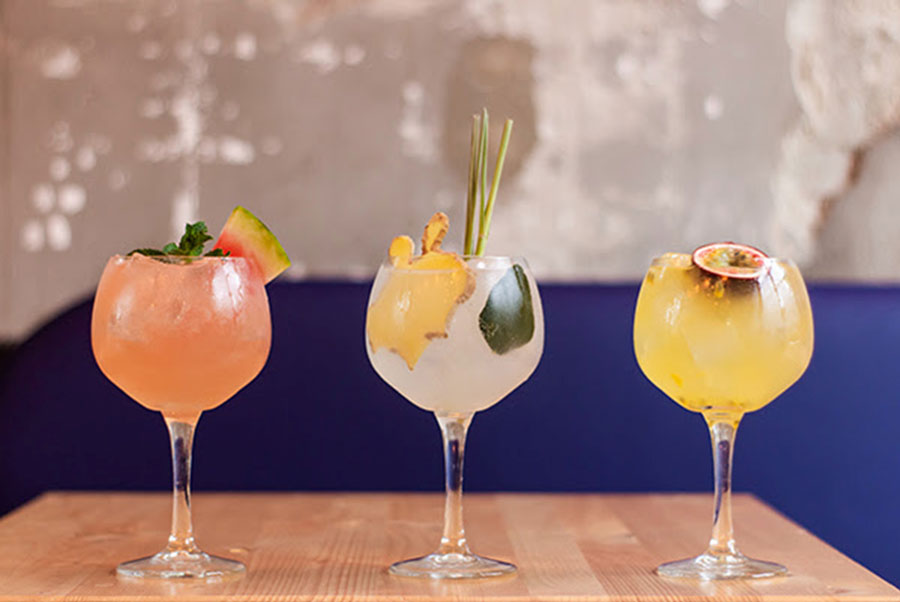
GIN OR VODKA: WHEN TO CHOOSE WHICH SPIRIT?
When reaching for a liquor bottle, Americans choose vodka more than seven times as often as gin. However, don’t let vodka’s popularity fool you into thinking it’s always the right choice.
When developing a cocktail, I begin thinking about the primary flavor to be highlighted.
If it’s a non-alcoholic element to be featured, vodka is often my choice. However, if the featured flavor is herbaceous, lightly citrus, or reminds me of a spice mixture, gin just might be the answer.
It is often necessary for me to taste several gins to find the right one. And that’s one of the best parts of developing cocktails.
(Side note: Don’t forget that flavored vodka is an option too.)

GIN MARTINI VS. VODKA MARTINI
The martini is often one of the most customized cocktails ordered. Order a martini, and you’re likely going to be asked:
- Gin or vodka? And what brand?
- How dry? This means how much vermouth you want. The gin to vermouth ratio determines how dry your martini is: Classic dry = ½ oz, very dry = ¼ oz, extra dry = dash, and extra, extra dry = no vermouth
- Olive or lemon peel (“twist”)? These are the two most popular garnishes. However, a cocktail onion, orange, or lime twist is also common.
- Dirty? Do you want olive juice in your martini? If so, order a dirty martini.
- Shaken or stirred shouldn’t be asked. Stir a martini! Bond was wrong.
These are all a matter of personal taste, except for the last one. That’s a rule.
I encourage you to have a martini cocktail party with some friends to experiment with different types of vodkas and gins, as well as the use of garnishes and olive juice. You can even test stirred vs. shaken.
Want to be more like James Bond? Try splitting the base of your martini by using both gin and vodka. It’s called a Vesper; Bond ordered it in the 1952 novel Casino Royale.
MARTINI RECIPES
My preferred Vesper martini recipe is:
- 1-½ oz Plymouth gin
- ¾ oz vodka
- ½ oz Lillet blanc
- Lemon twist for garnish
When it comes to making a classic martini for myself, it’s a stirred gin martini.
- 2-½ oz of London Dry Gin
- ½ oz of good dry vermouth (Dolin Dry Vermouth is my preference, but there is a world of vermouth to explore.)
- Lemon twist for garnish
Find your favorite martini spec through experimenting– But remember this: One is not enough, and three is too many.
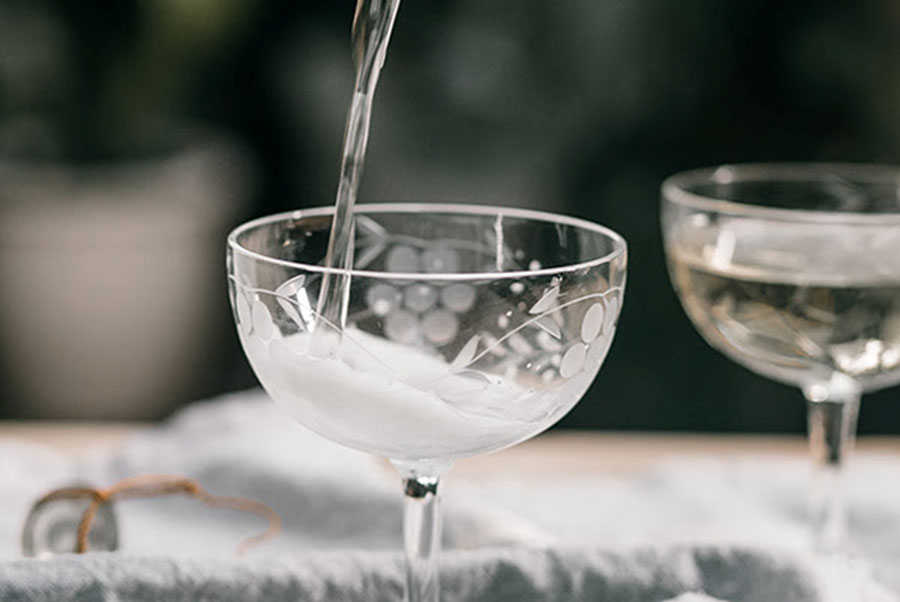
USING FLAVORED VODKAS VS. GIN
Occasionally, I reach for a bottle of flavored vodka. The resulting cocktail is often either a Cosmopolitan using citrus vodka or a Bloody Mary with spicy vodka.
As for substituting flavored vodka for gin, it could work well in a French 75. Just use your favorite fruit-flavored vodka in place of the gin.
French 75 Recipe:
- ½ oz Lemon Juice
- ½ oz Simple Syrup
- 1 oz fruit-flavored vodka
- 4 oz cold, dry sparkling wine
- Garnish with a lemon twist
Instructions: Shake all ingredients (except the sparkling wine) with ice, then strain into a champagne flute. Pour in the sparkling wine, stir gently, and garnish with the lemon twist.
IS GIN OR VODKA HEALTHIER?
It depends on whether you are asking the Russian Army or the British Navy. Both supplied a daily ration of spirits to their troops.
The winner in my book is the British defending against scurvy and malaria in the 19th century using gin and tonic with lime. However, in truth, vodka and gin are similar in calories.
It’s the mixers that dramatically up the calorie count. So a vodka soda with lime is a great way to enjoy a cocktail without any extra sugar– whereas adding tonic water, juice, simple syrup, or other sugary mixers to your base spirit will add a lot of calories.

SO WHICH IS IT FOR YOU: VODKA OR GIN?
Whether you choose vodka over gin or vice versa really depends on your personal taste in the end. After testing several styles and brands of each, which do you prefer? Do you enjoy the distinctive taste of a juniper-forward traditional London Dry gin? Or does a neutral vodka work better for you?
We’d love to hear your thoughts in the comments and over in the Craft Cocktail Club Facebook group. But whichever you choose… Cheers!



